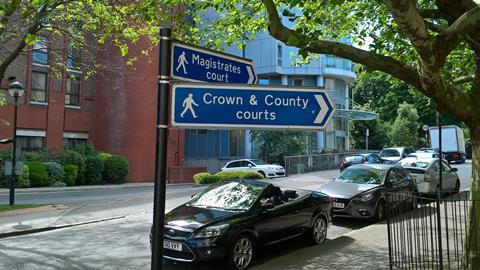Law Society head of justice Richard Miller answers common questions about how Covid-19 has affected courts and access to justice
Q. Are cases running online during the Covid-19 outbreak?
A. The courts have now directed that all matters that can be dealt with remotely should be.
Where possible, many firms will be working from home and handling cases and proceedings remotely.
This will bring its own unique set of challenges and our Covid-19 guidance for members provides some useful information on working from home during this time.
Q. Are courts still sitting during the pandemic?
A. Yes, some courts are still sitting as there are some urgent and important cases in which a physical presence will be required to ensure justice can be done.
In these cases, it is vital to ensure steps are taken to ensure good hygiene, appropriate distancing, and compliance with all other relevant guidance to minimise risk of exposure to the coronavirus.
Q. How many courts are open?
A. Early in the lockdown, the Ministry of Justice (MoJ) and HM Courts and Tribunals Service (HMCTS) announced the consolidation of courts and tribunals work into fewer buildings in response to the coronavirus crisis.
The Law Society’s interactive heatmap shows which courts and tribunal buildings continue to be operational. It will be updated as more data becomes available.
The status of the courts and tribunals buildings is:
- 159 open courts – these buildings are open to the public for essential face-to-face hearings
- 116 staffed courts – staff and judges will work from these buildings, but they are not open to the public. All other parties that may be involved in the video or telephone hearings being supported at staffed courts will only be able to attend these remotely
- 76 suspended courts – these courts will be temporarily closed
Q. Which cases are being heard in court?
A. On 23 March, all new jury trials were postponed and there are currently no jury trials under way.
The Law Society, alongside the Bar Council and Criminal Bar Association, has joined a working party set up by the judiciary which will consider ways of starting jury trials as soon as it is safe to do so.
HMCTS is publishing daily updates on which cases are being heard in court and their priorities for each area of law.
You can sign up to HMCTS email updates here.
Q. Could these court closures and online proceedings affect how courts are run in the future?
A. With the extensive adoption of remote methods of working, the question will inevitably arise to what extent we can, or even should, return wholesale to previous ways of working once this crisis subsides.
The reality is that such a profound shift will likely permanently alter how we uphold justice and the rule of law.
Therefore, we must monitor carefully which of the technological solutions are sustainable for the long term, to ensure that increases in efficiencies do not inadvertently come at the expense of justice being not only done but seen to be done.
Courts must be able to re-open once this crisis abates. We must be wary to avoid any risk of significant and permanent damage to the public’s ability to access justice.

*The Law Society is keeping the coronavirus situation under review and monitoring the advice it receives from the Foreign & Commonwealth Office and Public Health England.
































No comments yet